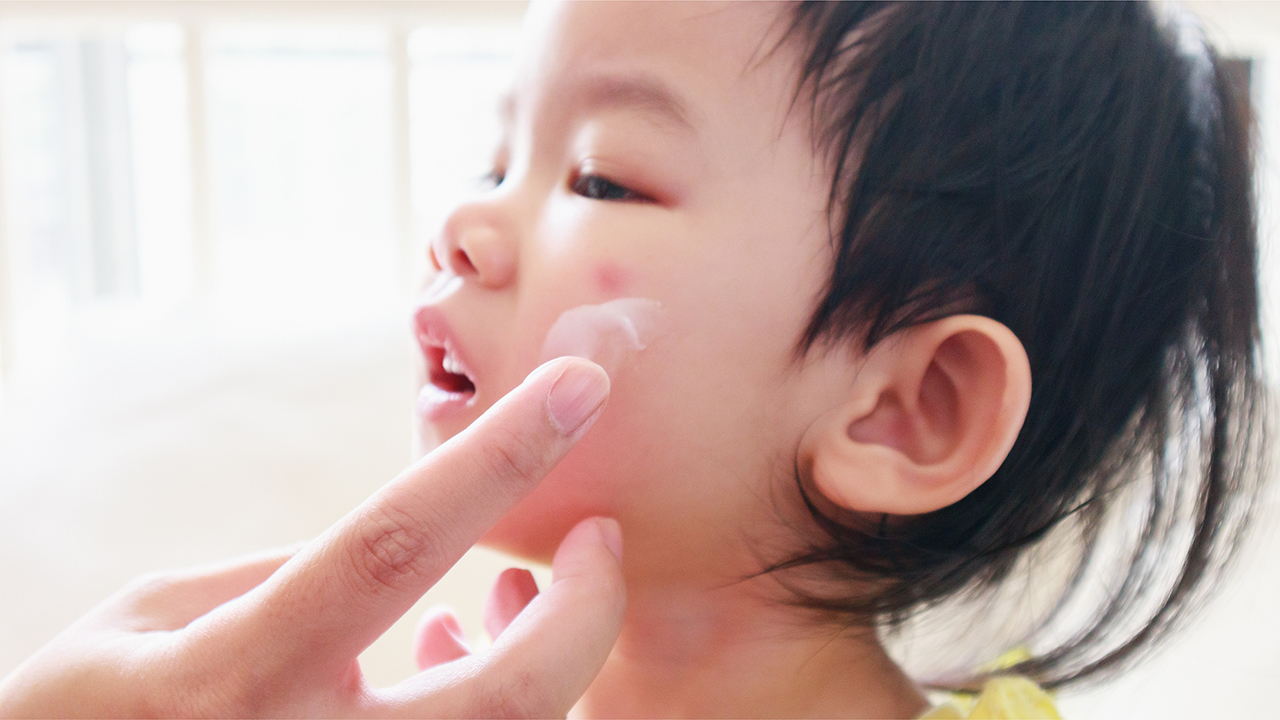Winter can be especially tough on children with eczema, as cold air, dry indoor heating, and lower humidity levels create an environment that often leads to flare-ups. Managing eczema during the colder months requires a proactive approach to keep skin hydrated, protected, and comfortable. Here are essential tips for preventing eczema flare-ups and helping your child enjoy the winter season without discomfort.
1. Moisturize Frequently with a Rich, Barrier-Forming Cream
Keeping skin moisturized is the cornerstone of eczema management, especially during the dry winter months:
- Choose a Thick, Fragrance-Free Cream: Creams or ointments are better than lotions in winter, as they form a stronger barrier against the cold.
- Apply Right After Bathing: Lock in moisture by applying cream immediately after baths or showers, while skin is still damp.
- Reapply Throughout the Day: Moisturize multiple times a day, especially on dry-prone areas like hands, cheeks, and elbows.
Regular, rich moisturization strengthens the skin’s barrier and helps prevent the dryness that triggers eczema.
2. Use a Humidifier to Keep Indoor Air Moist
Indoor heating can drastically reduce humidity, leading to drier skin and an increased risk of flare-ups:
- Place a Humidifier in Your Child’s Room: Adding moisture to the air helps keep skin hydrated.
- Aim for 40-50% Humidity: This range provides enough moisture to reduce skin dryness without encouraging mold growth.
- Clean the Humidifier Regularly: Regular cleaning prevents mold and bacteria buildup, ensuring the air remains safe and beneficial.
A humidifier combats the drying effects of indoor heating, helping to keep your child’s skin from becoming too dry.
3. Limit Hot Baths and Use Lukewarm Water
Hot water can worsen eczema by stripping the skin of its natural oils, so it’s essential to adjust bath routines:
- Keep Baths Short and Warm: Limit bath time to 5-10 minutes, and use lukewarm water to prevent further dryness.
- Use a Mild, Fragrance-Free Cleanser: Choose a gentle, eczema-friendly cleanser to avoid irritating the skin.
- Pat Skin Dry and Moisturize Immediately: Gently pat (don’t rub) skin dry and apply a moisturizer right after to lock in hydration.
Short, lukewarm baths help maintain skin’s natural moisture balance and reduce the likelihood of flare-ups.
4. Dress in Soft, Breathable Layers
Choosing the right clothing can prevent irritation and help regulate body temperature, both of which are crucial for managing eczema:
- Use Cotton or Other Natural Fabrics: Cotton is gentle on sensitive skin, while wool and synthetic fabrics can scratch and irritate.
- Dress in Layers: Layering allows for easy temperature control, helping to avoid overheating, which can trigger sweating and worsen eczema.
- Avoid Overheating: When indoors, ensure your child isn’t overdressed to prevent sweating, which can aggravate eczema-prone skin.
Soft, breathable clothing minimizes irritation and helps keep your child’s skin comfortable in cold weather.
5. Protect Skin from Cold and Wind
Exposed skin is more vulnerable to dryness and irritation from cold winds, so protect it before heading outdoors:
- Apply a Barrier Ointment to Exposed Skin: Use a thin layer of ointment on areas like cheeks and lips to shield against the elements.
- Cover with Scarves, Hats, and Gloves: Wrap up areas that are sensitive to wind exposure, helping to prevent windburn and chapping.
- Choose Lip Balm for Lip Protection: Chapped lips are common in winter, so apply a fragrance-free lip balm before going outside.
Shielding skin from cold and wind reduces the chance of irritation and keeps skin protected.
6. Avoid Common Eczema Triggers
Winter can bring about additional triggers that worsen eczema, so be mindful of these potential irritants:
- Limit Exposure to Dust and Pet Dander: Increased indoor time can mean more exposure to dust and dander, so keep your home clean to minimize allergens.
- Avoid Harsh Soaps and Detergents: Choose fragrance-free, hypoallergenic soaps and detergents to prevent irritation.
- Monitor for Food Triggers: Some kids with eczema have food sensitivities, so be cautious with new or holiday-specific foods that may cause flare-ups.
Minimizing triggers during winter helps prevent unexpected flare-ups, allowing for smoother, more comfortable skin.
7. Stay Hydrated to Support Skin Health
Proper hydration from the inside can make a significant difference in skin health and reduce dryness:
- Encourage Water Intake: Even in colder months, ensure your child drinks enough water throughout the day.
- Incorporate Water-Rich Foods: Foods like oranges, cucumbers, and soups contribute to hydration and can help support skin health.
- Limit Sugary or Caffeinated Drinks: These drinks can be dehydrating, so prioritize water as the main beverage.
Staying hydrated keeps skin better equipped to withstand winter’s drying effects.
Final Thoughts
Preventing eczema flare-ups during the cold months involves taking proactive steps to protect your child’s skin. With regular moisturizing, the use of a humidifier, gentle bathing practices, and attention to clothing choices, you can reduce the risk of winter flare-ups and keep your child’s skin more comfortable. These simple practices create a skin-friendly routine that allows your child to enjoy the season with fewer disruptions from eczema.

